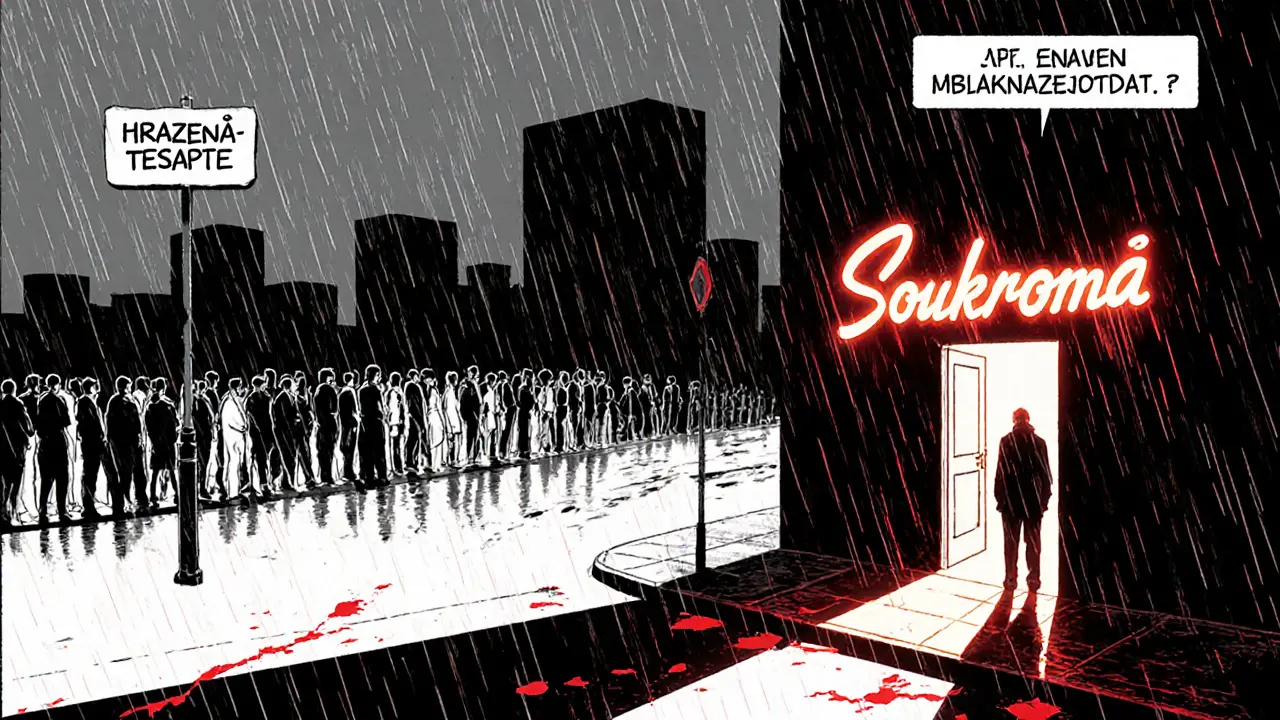Psycholog hrazený pojišťovnou: Jak získat terapii zdarma a co vám skutečně nabídne
When you’re looking for a psycholog hrazený pojišťovnou, psychoterapeut, jehož náklady pokrývá zdravotní pojišťovna, obvykle v rámci povinného zdravotního pojištění. Also known as psychoterapeut hrazený pojišťovnou, it is one of the few ways in the Czech Republic to access professional mental health support without paying out of pocket. Many people assume this means quick, unlimited sessions — but the reality is more complicated. The system exists, but it’s stretched thin, and knowing how to navigate it can save you months of waiting or disappointment.
Behind the scenes, this isn’t just about finding any therapist with a contract. It’s about understanding how zdravotní pojišťovna, organizace, která financuje psychoterapii pro své pojištěnce, například VZP, OZP nebo Česká spořitelna decides who gets approved, how many sessions you’re allowed, and what kind of therapy counts. Not all approaches are covered equally — cognitive behavioral therapy (KBT) usually gets the green light, but others like psychodynamic or trauma-focused work often fall outside the standard package. And while you might think you’re choosing your therapist, the reality is you’re often assigned to whoever has an opening next — which can mean long waits or mismatched styles.
Even if you get approved, don’t expect deep, long-term work. Most pojišťovna-funded therapy is limited to 10–20 sessions, focused on symptom relief, not transformation. If you’re dealing with trauma, chronic anxiety, or complex relationship patterns, this might feel like putting a bandage on a broken bone. That’s why so many people start with the public system — and then switch to private therapy once they realize they need more.
But here’s the truth: having access to a psychoterapie pojišťovnou, formálně uznávaný psychoterapeutický proces, který je hrazený z veřejných zdrojů is still better than nothing. It’s a lifeline for people who couldn’t afford therapy otherwise. And for many, even a few sessions can create enough space to start recognizing patterns, naming emotions, or simply feeling heard for the first time.
What you won’t find in this system? Personalized plans, flexible scheduling, or therapists who specialize in autism, ADHD, or digital addiction — topics you’ll see covered in the posts below. The public system is built for common diagnoses like depression or generalized anxiety, not the nuanced, modern struggles many of us face. That’s why this page brings together real experiences — from how to actually get an appointment, to why some therapists refuse pojišťovna cases, to what to do when the sessions run out and you still need help.
Below you’ll find articles that dig into the gaps between what the system offers and what you actually need. Whether it’s learning how to build your own mental health plan, understanding trauma-informed care, or discovering alternatives when the pojišťovna says no — these are the tools that help people move forward when the official route falls short. You don’t have to wait for the system to catch up. There are ways to get the support you deserve — even if it doesn’t come with a pojišťovna stamp.
Jak najít psychoterapeuta: Kde hledat a na co se ptát při výběru léčby
Naučte se, jak najít psychoterapeuta, který vám opravdu klapá. Zjistěte, kde hledat, na co se ptát a jak poznat, že jste na správné cestě. Výběr terapeuta není o titulech, ale o bezpečí a shodě.
